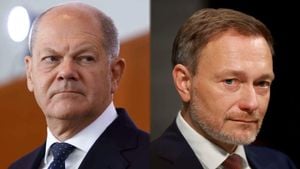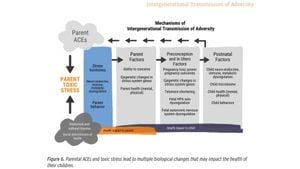Germany is at a political crossroads as voters headed to the polls for national parliamentary elections on Sunday, amid economic downturns, migration crises, and shifting alliances with the United States. After the unexpected collapse of Chancellor Olaf Scholz's three-party coalition government following the ousting of Finance Minister Wolfgang Schauble, German citizens are grappling with pivotal choices about their future.
Initially set for September, these elections were hastened by the urgent need to address persistent economic issues, with polls indicating the Social Democrats (SPD), led by Scholz, were trailing behind the right-wing Alternative for Germany (AfD) and the Christian Democratic Union (CDU). According to the Telegraph, the current polling places the CDU at 29%, the AfD at 20%, and Scholz's SPD lagging at around 16%.
Friedrich Merz, the CDU leader and conservative frontrunner, faces the monumental task of uniting fractured party lines to form a government. Political observers like Jana Puglierin of the European Council on Foreign Relations highlight concerns about the potential fallout of lengthy coalition negotiations, stating, “I’m just worried...that after the elections it could take maybe two months to form a coalition government.” This fear echoes throughout the electorate, particularly as Germany grapples with pressing economic issues and the legacy of US-led security arrangements.
Beyond Merz's aspirations, voters are increasingly focused on the AfD's influence, especially as the party capitalizes on national crises. The political climate has been tense, with deadly attacks linked to immigration reinforcing the AfD's anti-immigration stance and garnering them unprecedented levels of support. According to npr, this far-right surge complicates coalition dynamics, as mainstream parties pledge to keep AfD from power.
Analysis of the electoral system reveals how voters navigate the mixed proportional representation system, with the opportunity to vote for both individual candidates and parties. The stakes are high, as parties must either surpass the 5% threshold or capture three constituencies to gain entry to the Bundestag, impacting the number of seats allocated.
With reports of around 52% of eligible voters already casting their ballots by early afternoon, turnout is expected to rival past elections, indicating heightened civic engagement stemming from political discontent. Sylvia Otto, a 66-year-old deliberative voter, articulated the dilemma many face: "I still find it difficult to make a decision this time. I want change — but now change to the right. That’s very important to me.”
On the eve of the elections, Merz enthusiastically told supporters, “We will win the elections and then the nightmare of this government will be over,” emphasizing his conservative platform, which includes tightening border controls to mirror sentiments amplified by AfD rhetoric.
With voter concerns veering between desire for strict immigration policies and maintaining Germany's European partnerships, the questions about stability and governance loom large. Voter sentiments reflect the importance of who controls the next government, especially with the recent rise of Donald Trump's influence on both sides of the Atlantic. Trump remarked on the elections, stating, “Much like the USA, the people of Germany got tired of the no common sense agenda,” exemplifying how global politics now resonate within German borders.
Leaders from neighboring nations have shown interest, predicting how the election will potentially reshape international relationships. Israeli Prime Minister Benjamin Netanyahu congratulated Merz, emphasizing hopes for closer ties between Germany and Israel. NATO Secretary General Mark Rutte echoed support for Merz, underscoring the need for strong European defense as tensions rise globally.
Finally, the path to forming the next government remains fraught with challenges, as coalition talks could lead to political stalemates. Walter, a business strategist, cautioned, “It could be months before any of this is finalized, and decisions need to be made sooner than later.” The urgency for timely governance arises from EU anxieties over the shifting US relations as the potential for disruption looms large. Germany's impending choice will resonate across Europe, dictifying the political character of the EU’s largest economy for years to come.



